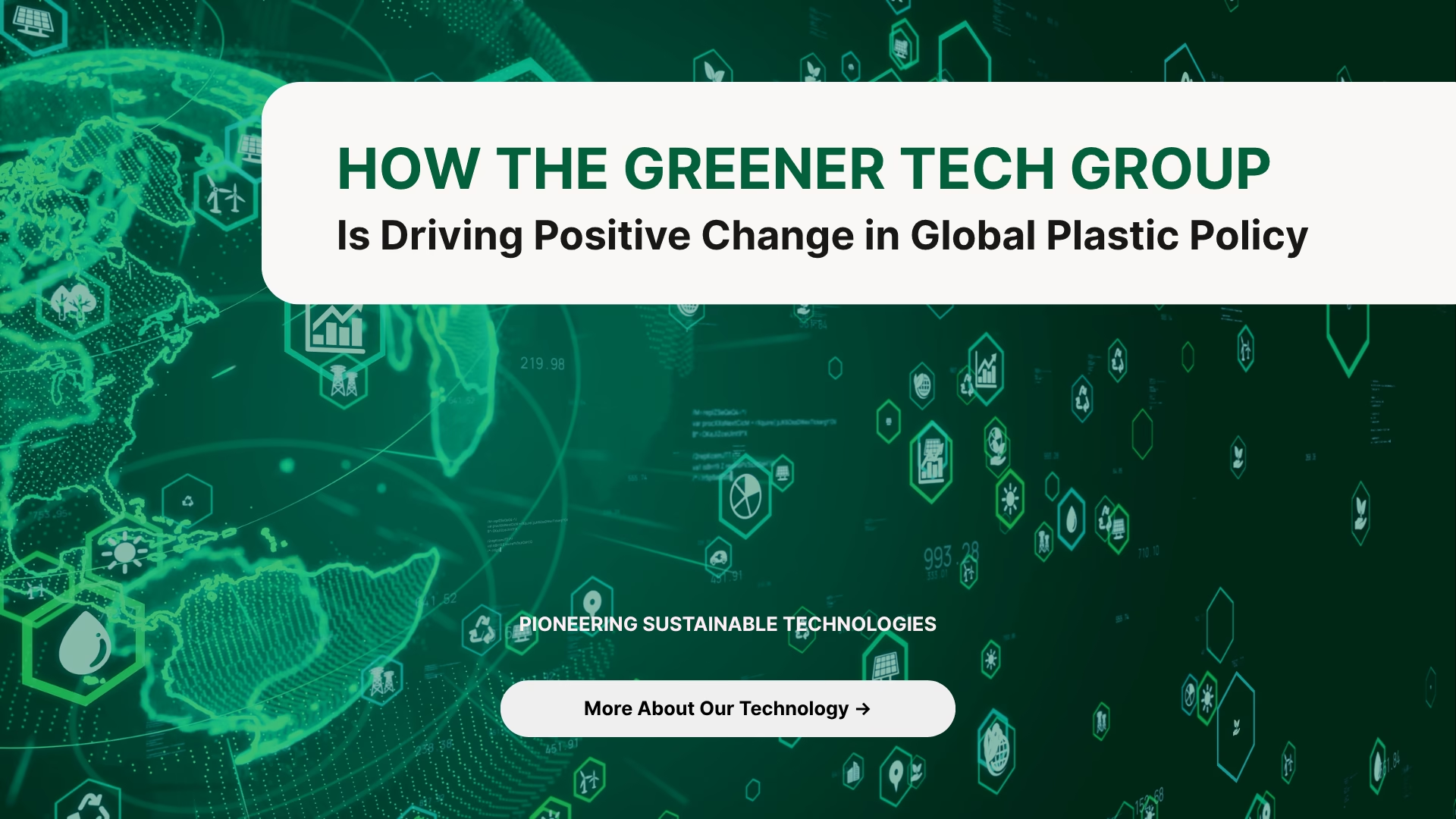Through strategic import/export licensing and policy advocacy, The Greener Tech Group is reshaping how nations approach plastic waste, pushing forward sustainable technologies on a global scale.
Leading the Charge in Sustainable Innovation Licensing
As plastic production continues to rise—projected to triple by 2050—the need for scalable, sustainable alternatives has never been more urgent. While governments and industries around the world struggle to keep pace with environmental regulations, one organization is stepping up to bridge the gap between innovation and implementation: The Greener Tech Group .
This pioneering group is not only raising awareness about the health and environmental dangers of microplastics but also actively working to bring proven sustainable technologies into countries where they are most needed. Whether through legalizing new materials, influencing policy change, or enabling large-scale distribution and manufacturing, The Greener Tech Group is positioning itself as a global leader in the fight against plastic pollution.
One of its most impactful contributions lies in the licensing and deployment of enzyme-based plastic degradation technology , which allows traditional plastics to fully biodegrade without leaving behind microplastics or toxic residue. This innovation is already transforming the way we think about plastic packaging, bottled water, and consumer goods.
The Role of Import and Export Licensing in Green Innovation
One of the most powerful tools at The Greener Tech Group’s disposal is its ability to facilitate the import and export licensing of sustainable technologies , particularly those that use biological processes to break down plastics. This includes:
- Enzyme-infused HDPE & LDPE packaging
- Biodegradable bottled water containers using depolymerization technology
- Chemical-free agricultural products
- Microplastic-free food packaging systems
By ensuring that these innovations can cross borders efficiently and legally, The Greener Tech Group enables companies and governments to adopt greener practices without delays or regulatory roadblocks.
Importantly, this isn’t just about moving products—it’s about transferring knowledge, best practices, and environmental accountability from one region to another. The group works closely with regulators, customs agencies, and industry partners to ensure compliance while promoting a shared vision of sustainability.
From Local Solutions to Global Impact
The Greener Tech Group’s work begins in Australia, home to some of the most advanced developments in enzyme-based plastic breakdown systems. However, their mission goes far beyond national borders. With operations expanding across Southeast Asia, Europe, and North America, the group is helping other countries adopt similar standards and practices.
For example, a leading Australian brand now produces biodegradable bottled water containers using enzyme-assisted depolymerization. These bottles are filled with pure spring water and designed to fully break down in landfill environments through microbial digestion. The process leaves behind no harmful residues, making it one of the most promising breakthroughs in sustainable hydration.
The Greener Tech Group supports the licensing and distribution of this technology , allowing manufacturers worldwide to produce their own versions of biodegradable plastic bottles under strict quality and environmental controls.
Advocating for Stronger Global Plastic Policies
Beyond logistics and licensing, The Greener Tech Group plays an active role in shaping the future of global plastic policy. By engaging with international bodies such as the United Nations Environment Programme (UNEP) , World Health Organization (WHO) , and regional environmental coalitions, the group advocates for:
- Stricter regulation of nanoplastics in food and water
- Mandatory labeling of plastic content in consumer goods
- Incentives for businesses adopting enzyme-based biodegradable alternatives
- International agreements on reducing virgin plastic production
The group believes that true systemic change requires both top-down policy reform and bottom-up consumer awareness. That’s why their media strategy includes public education campaigns, collaborations with scientific institutions, and partnerships with major news outlets to bring these issues to light.
Building a Circular Economy Through Sustainable Trade
At the heart of The Greener Tech Group’s mission is the promotion of a circular economy , where resources are reused, recycled, or biodegraded rather than discarded after a single use. Their licensing efforts help accelerate this transition by making sustainable technologies accessible to manufacturers, retailers, and consumers worldwide.
This model not only reduces environmental harm but also creates economic opportunities. As demand for green products grows, so too does the market for sustainable innovation. The group is helping position Australia—and eventually the world—as a hub for clean technology exports, creating jobs, fostering research, and driving long-term economic resilience.
Conclusion: A New Era of Environmental Leadership
The Greener Tech Group is proving that real progress in the fight against plastic pollution is possible when science, policy, and business align. By leading the way in sustainable technology licensing and global plastic reform, the group is setting a benchmark for others to follow.
With continued investment and international cooperation, we can move toward a world where plastic waste is no longer a threat to human health or the planet. And with organizations like The Greener Tech Group paving the way, that future is already within reach.
Key Summary
✓ The Greener Tech Group is driving global plastic reform through import/export licensing and policy advocacy.
✓ Facilitates access to enzyme-based biodegradable HDPE/LDPE , microplastic-free bottled water , and chemical-free agriculture across borders.
✓ Promotes depolymerization technology , allowing plastics to fully biodegrade without leaving microplastics.
✓ Engages with international bodies to shape stronger global plastic policies and consumer transparency laws.
✓ Champions a circular economy model to reduce waste, create green jobs, and foster sustainable trade.
✓ Positioned as a leader in sustainable innovation , helping nations meet climate goals and reduce plastic dependency.

